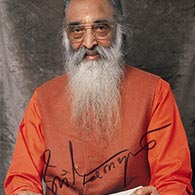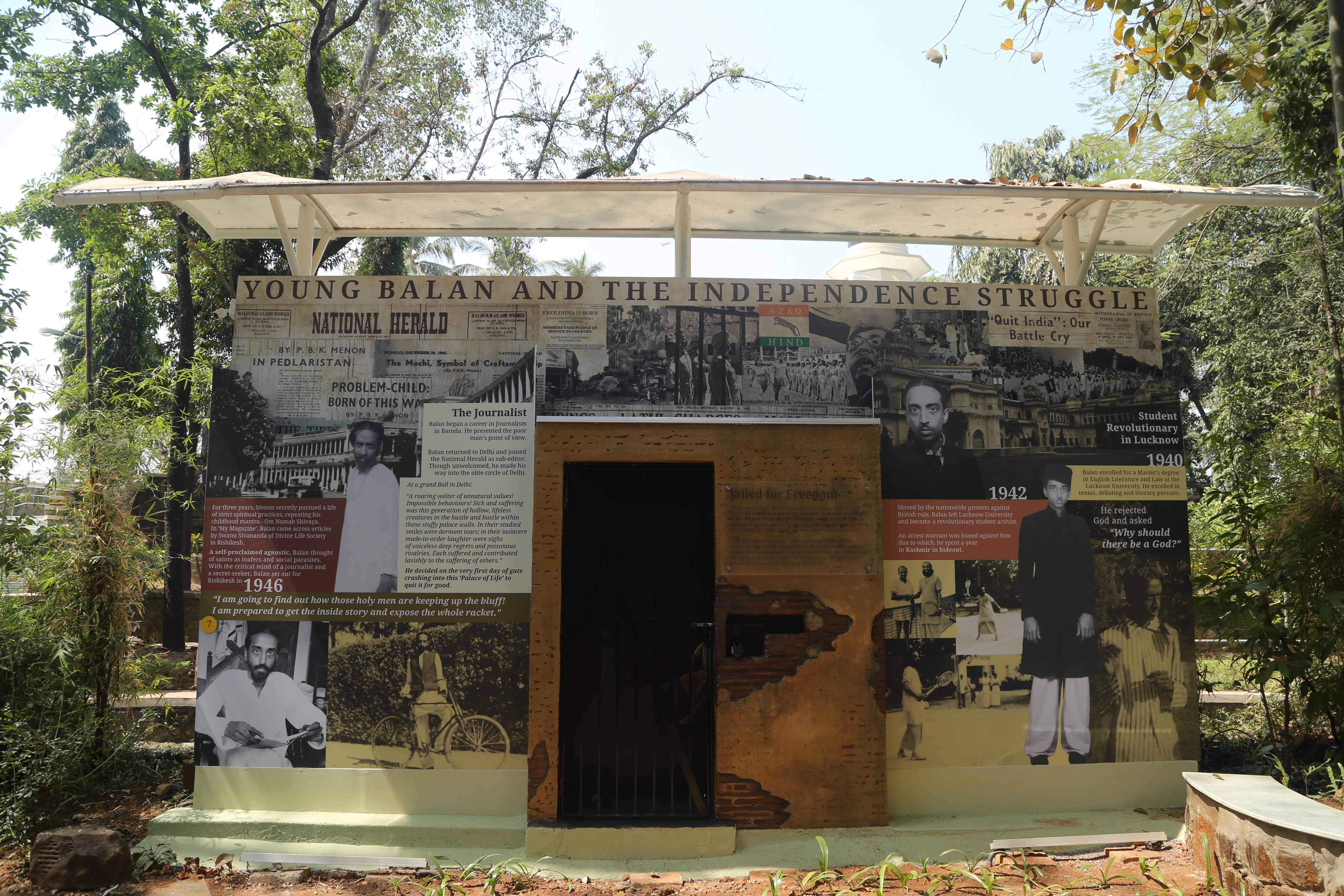In 1940, he joined Lucknow University where he was accepted into the Master’s degree programme in his favourite subject, English Literature. He also opted for a secondary course in Law. However, Instead of academics, he excelled in tennis, debating and literary pursuits. The lack of interest in law, his father’s profession, coupled with the absence of ambition and an extravagant taste for clothes, became a source of despair for his father.
Moved by the nationwide protests against British rule in 1942, Menon left Lucknow University and became a student activist, distributing leaflets, giving public speeches to stir up National Pride & need for freedom.
A Warrant was issued against him. He was in Kashmir for an year in hideout. While returning to Delhi, he escaped from a bus in Abbottabad and joined as a machine operator to decode messages, in British intelligence communication center. Assuming that the case against him would have been forgotten, after 8 months of service there, he left for Punjab and became active again in the freedom struggle. But he was caught and imprisoned.
Weakened by disease and Typhus, lack of hygiene and proper food during the several months in Jail, Balan one day lost consciousness. Due to innumerable in-prison deaths, the British carried the sick young man to the outskirts of the city at night and left him to die by the roadside.
The compassion of an Indian Christian lady saved his life. (Balan later jokingly recalled,) “It was my nose that saved me on the roadside that day – it looked exactly like her son’s”
More Info
At the beginning of the world war I, Indians had been promised Dominion status after the war and hence India gave all-out support to the British. More than a million Indians fought in the Middle East, Africa, Iran and Afghanistan. Funds for these were obtained by double taxation of Indians. Post-war India was suffering economically, plus a pneumonia epidemic had killed atleast 13million. Indians protested for self-rule but British retaliated and also bombed Punjab. Dominion status was not granted. Again in 1939, without her people or leaders being consulted, the British Viceroy announced that India along with all other nations of the British Empire had declared war against Germany - the World War II. India was at war to ensure that other nations had the right to choose their own forms of government while being denied that option herself.
Freedom Fighter -> Journalist -> Agnostic Seeker
Balan then went to Baroda to recuperate and stayed with his cousin Achuthan Menon. He began a career in Journalism and wrote short critical satires presenting the poor man’s point of view. His articles were printed in Indian Nationalist Newspapers.
“My Magazine” happened to feature a series of articles on the lives of saints in the Himalayas. Balan leafed through these magazines and came across the articles focusing on the values of the Hindu Culture and religion. One such article was by the President and founder of the Divine Life Society of Rishikesh. This was Balan’s first encounter with Swami Sivananda. Balan thought of the saints as apparent loafers who lived in caves and huts, completely detached from the problems of their fellow countrymen.
Returning to Lucknow University in 1945, he completed MA in English with honours and also pursued some courses in Journalism. Balan worked at Free Press journal in Mumbai for a short while before he returned to Delhi and joined the National Herald as sub-editor.
Grand Ball in Delhi
Balan was taken aback to find that he was not welcomed into the society of the Educated wealthy of Delhi. Nevertheless, he was determined and he made his way into the elite circle to enjoy the fruits of the good life.
The occasion was a grand ball in one of the Delhi Palaces with all the dignitaries of the government and magnates of business on the guest list. The company of the city’s social elite disillusioned him. Despite their wealth, they exhibited neither happiness nor satisfaction with life. Was economic upliftment the real need of the day, he wondered!
“ A roaring welter of unnatural values! Impossible behaviours! Sick and suffering was this generation of hollow, lifeless creatures in the hustle and bustle within those stuffy palace walls. In their studied smiles were dormant tears; in their insincere, made-to-order laughter were sighs of voiceless deep regrets. Their heartless love concealed stormy hatreds, grudging sympathies and poisonous rivalries. Each suffered and contributed lavishly to the suffering of others.” He saw what a godless animal life could be, even at the level that most considered to be the best.
They manoeuvred a revolution to bring about - not happiness to many - but power to the few.
He decided on the very first day of gate crashing into this ‘Palace of Life’ to quit it for good.”
For three years, Balan secretly pursued a life of strict spiritual practices, repeating his childhood mantra - Om Namah Shivaya and studying european philosophy, while remaining in the very mainstream of life. Dry philosophy gave little compensation to Balan burning for first hand experience.
Balan turned to the words of the great saints from India. Questions kept tugging at Balan’s mind. Was there any truth to what the Hindu sages were saying? If they were really concerned about mankind, why were they not down there with him trying to improve the society in which man was destined to live? How could they justify their retired life along the holy rivers and in the sacred mountains when Bharat was suffering under the distress of centuries of foreign domination?
He decided “I am going to the Himalayas to see what those holy men really do. Im going to get the inside-story.”
With the critical mind of a journalist and a secret-seeker, in 1946 Balan set out for Rishikesh with the attitude “I am going to find out how those holy men are keeping up the bluff! I am prepared to expose the whole racket”
To know what happened when he met Swami Sivananda, go to the Sails next to the Banyan tree opposite the Jail.
Design Notes
Freedom Struggle & the Jail
Using layered photographic montages, this panel depicts events in Balans life from his time as a student in Lucknow University, to his imprisonment during the British rule and finally to his early days in Delhi as a journalist.
The upper section of the exhibit is composed of images from the revolutionary Indian independence movement establishing the historical and political background of Balan’s life. On the left are the days of Balan, studying in Lucknow University and rejecting the concept of God. In the centre, is a jail as a three dimensional set element, depicting the conditions at the time of Balan’s imprisonment. The Jail uses Trompe l'oeil effect(perspective illusionism) to give the feel of depth to the jail where Balan is imprisoned. The right side has images of Balan’s articles printed in the National Herald, his journalistic days and his resolve to expose the Sadhus.



